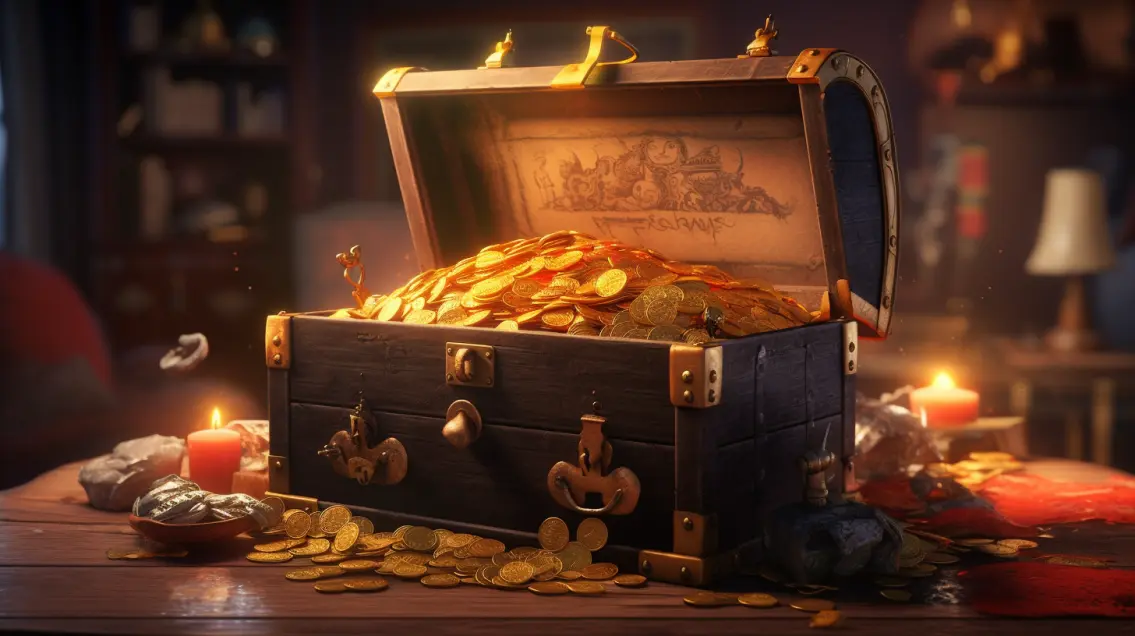Simplifying Family Trusts in Australia
Ever wished for a strategy to secure your family’s riches, nail your tax planning, and call the shots on how your assets are divided? Enter the world of family trusts.
Picture a family trust as a treasure chest. In this chest, you keep valuables like cash, properties, and investments.
To manage this chest, you assign a trustworthy person or company – the ‘trustee’. Their job? Make sure your family – the ‘beneficiaries’ – benefits from the chest’s contents.

A family trust is a legal structure. It’s born when you sign a written legal document known as a trust deed.
It’s a specific kind of trust, called a discretionary trust. That means you’ve got flexibility in deciding who gets the income or assets from the trust. This trust – your treasure chest – holds and safeguards assets for your family group’s benefit.
So, why create a family trust? It shields your wealth, plans out asset distribution, and may even offer tax perks. Sounds a breeze, right?
But hold your horses. There’s a bit more complexity to grapple with. To break it down, we’re going to treat it like a board game – The Game of Life.
This game’s a fun way to simplify the idea of a family trust. Ready to give the wheel a whirl?
Want to jump to specific sections?
Unboxing the Game: What to Expect
First, we’ll uncover the key roles in a family trust: the settlor, appointor, trustee, and beneficiaries.
Next, we’ll delve into the game’s rules, the trust deed, and explore the assets under the trust’s protection.
We’ll discuss the perks of a family trust, like asset protection, tax minimisation, and controlled distribution. We’ll also ponder potential pitfalls.
Finally, we’ll stress the importance of having expert legal and financial advisors. You need a trust that’s structured well and offers the right level of flexibility.
So, buckle up for a riveting trip through the world of family trusts – spin the wheel and let’s get this show on the road!
Setting the Scene: The Game of Life
Remember the classic Game of Life board game? It’s brimming with twists and turns, just like life’s journey. The car, play money, and stock certificates represent your assets. The spinning wheel drives your moves and decision-making.
Your ultimate goal? Gather as much wealth as you can for your family’s future.
A family trust helps you protect your assets. It also guides your financial decisions, just like the spinning wheel.

This tool doesn’t make your journey effortless, but it certainly makes it more strategic and secure.
Whether you’re a rookie or a veteran, this gaming session will shed light on the workings of a family trust.
Ready, set, let’s start spinning!
Understanding the Roles: Settlor, Trustee, Appointor and Beneficiaries
Just like our Game of Life has players, a family trust operates with four significant roles. Let’s meet them.
1. The Settlor
Setting up your game board is the first step of the journey. In the trust world, the settlor kicks things off. They prepare everything to get the game rolling.
Once they launch the trust with an initial amount (think of it as handing over your starting $10), they step back. Their role is over.
They’ve set the game in motion. Now they let the other players step in and play. They’re not involved in the game going forward.
2. The Trustee
The game’s all set. Who’s spinning the wheel? In a family trust, that’s the trustee.
It could be you, or someone else you trust. It could be a person or a company. They run the trust, just like the person spinning the wheel drives the Game of Life car.
The trustee doesn’t spin aimlessly. They stick to the rules in the trust deed. It’s like a game manual, making sure they stay on the designated path.
3. The Appointor
Here’s the heavyweight – the Appointor. Picture them as the Game Master. They oversee the game and have the power to hire and fire the Trustee.
That means they can switch the Trustee if they believe it’s best for the trust and its beneficiaries. The Appointor adds another layer of security to the trust, ensuring the Trustee is sticking to the trust deed.
Just like a Game Master can change the game’s dynamics if the rules aren’t being followed, the Appointor maintains balance and fairness in the trust.
If you’re going to take up just one role, be the Appointor.
4. The Beneficiaries
We’ve got our trust (game board) ready, and our trustee (wheel spinner) set. The Game Master’s watching over, but who reaps the rewards? Enter the Beneficiary – they’re the people in your Game of Life car.
They could be your family members, or even others you choose. They’re eagerly waiting to see where the trustee’s spins will take them.
You have named beneficiaries, like you, your spouse, your kids. They’re the pegs in your car, the people in your immediate family.

Then there’s a broader group or class of beneficiaries, defined by their relationship to the named beneficiaries.
- Grandchildren of the named beneficiaries”.
- Spouses of any children of the named beneficiaries”.
- “Companies where any of the named beneficiaries is a shareholder or director”
There you have it – the Settlor, Trustee, Appointor and Beneficiaries. Your key players in the Game of Life: Family Trust Edition!
The Game Instructions: The Trust Deed
Remember the thrill of unboxing a new game and finding the instruction booklet?
The rules guide your moves, strategies, and decisions. That’s the trust deed in the family trust world.
The trust deed – your game instruction booklet – explains how to navigate your family trust. It shows the route for the journey, rules of engagement, and the ultimate goal.
The trust deed lists the key players – the specific names of the people in the roles we’ve just discussed.
It also sets out how the assets should be managed. It lays out what the Trustee is allowed or not allowed to do.
These assets could be anything from real estate to investments, even business assets.
Distribution of Benefits
Just like game instructions show you how to score points or win rewards, the trust deed outlines when and how to distribute benefits to beneficiaries.
Usually, the terms are as flexible as possible. That means the trustee distributes at their discretion.
Navigating the family trust may feel like a complicated game, but understanding the trust deed – or the ‘game instructions’ – is a great place to start. Like any game, as you get more familiar with the rules, things begin to fall into place.
The Game Prize: Trust Assets
In every game, there’s a prize. In the Game of Life, it’s all about gathering wealth. In family trusts, the ultimate prize is the trust assets.

What are trust assets?
Well, think about the Game of Life. You collect money, stock cards, life tiles, house deeds. Trust assets can be a bunch of different things, too.
You might have real estate, a wad of cash, stocks, precious family keepsakes, or even a thriving family business. As the trust ‘player’, these are the gems you’re aiming to grow.
But, remember, a family trust isn’t magic. It doesn’t make your money grow overnight. Instead, it’s a tool that helps to manage your wealth and keep it safe.
Just like in the Game of Life, you need to make smart money moves. Knowing when to buy a stock card or get a house deed is always crucial!
Compounding your assets – that’s the real game strategy here. To grow your trust assets effectively, you need to make wise investments, have sound financial strategies, and keep an eye on the economy.
A family trust gives you the framework for managing these assets. But, you or your appointed trustee still have to do the work to grow them.
The Trustee’s Moves: Asset Management and Benefit Distribution
In the role of a trustee, there are tasks to do. These can be compared to actions in the Game of Life. They might grow the trust fund by investing assets, like buying stock cards in the game.
They might share out benefits to beneficiaries, much like sharing the game’s wealth. In some instances, they might need to sell assets, similar to selling a house deed in the game.
Aiming for Victory: Understanding the Benefits of a Family Trust
Why set up a trust? Well, just as every player starts the Game of Life with the aim of winning, setting up a family trust is about achieving certain financial and personal goals.
It’s like having the right strategy to maximise wealth and safeguard it for the future.
The Power-Ups: Asset Protection and Looking After Your Family
Imagine having a forcefield in the game, shielding your assets from others who might want a piece. That’s one big advantage of a family trust. It keeps your hard-earned assets safe.
And let’s not forget your family, your team in this game. A family trust lets you look after them, sharing the wealth you’ve built.
The Bonus Points: Tax Minimisation and Controlled Distribution
A family trust can be a secret weapon in the game, helping you lower taxes. In Australia, you can distribute income from the trust in a smart way to reduce family tax.
Let’s say you’ve got an adult child who’s just finished studying and hasn’t started working yet. In the Game of Life, you might decide to give them a bigger share of the winnings.
Why? Well, they’re not earning anything else, so they’re in a low tax bracket. By giving them a bigger slice of the trust’s income, you can save on taxes for your family. The same can work if your partner earns less too.
And here’s another bonus: you get to control when and who gets the wealth from the trust. This control is like deciding who gets the biggest share of the rewards in the game, ensuring your wealth goes exactly where you want it to.
Navigating the Speed Bumps: Potential Challenges with Family Trusts
The Game of Life isn’t all smooth sailing, and the same goes for family trusts. It’s rewarding, but also serious stuff. If you don’t manage it right, you might face legal and financial hiccups.

Trust Set-Up: More Than Just Rolling the Dice
Setting up a trust isn’t as easy as starting a board game. It’s more like putting together a tricky jigsaw puzzle.
You need to pick the right trust type, work out who the beneficiaries will be, and set clear goals. And let’s be honest, this can get complex
Tax Implications: Playing by the Rules
Whilst there can be potential tax benefits, there are also tax implications to consider. For instance, a trust needs to pay out all income, and the beneficiaries are taxed on it at their own tax rates.
Holding onto income gets taxed at the highest tax rate. It’s a bit like landing on an unexpected square in the Game of Life that alters your game strategy.
Engaging the Coaches: The Role of Legal and Financial Advisors
Given these complexities, it’s wise to engage professional help – the equivalent of having a seasoned coach guiding you through the game.
Legal and financial advisors can provide tailored advice to ensure the trust aligns with your unique circumstances and goals, and that you stay on the right track throughout your game of trusts.
Conclusion
Just like a well-played game of The Game of Life, a family trust is a smart way to handle and safeguard your wealth.
From the Settlor who kicks off the game, to the Trustee who navigates the gameplay, down to the Beneficiaries who enjoy the rewards – each role is key for the trust to work well.
The trust deed gives the rules, and the assets in the trust represent the wealth you want to protect and grow.
If you handle your trust well, like making smart moves in a board game, you can really make the most of the benefits. Think asset protection, tax minimisation, and controlled distribution of assets. But watch out for the potential speed bumps, especially tax implications, and consider getting professional advice.
So in the end, a well-set up family trust offers a winning strategy, giving you flexibility and security for the future. Just like in the Game of Life, success in the family trust world comes from strategic planning, careful decisions, and thinking ahead. Here’s to your victory in the game of trusts!
Ready to set your winning strategy in motion? To help you make your move, check out our detailed guide on Setting Up a Family Trust in Australia. It’s packed with useful info and step-by-step instructions to help you make the most of your family trust. Good luck on your journey!






